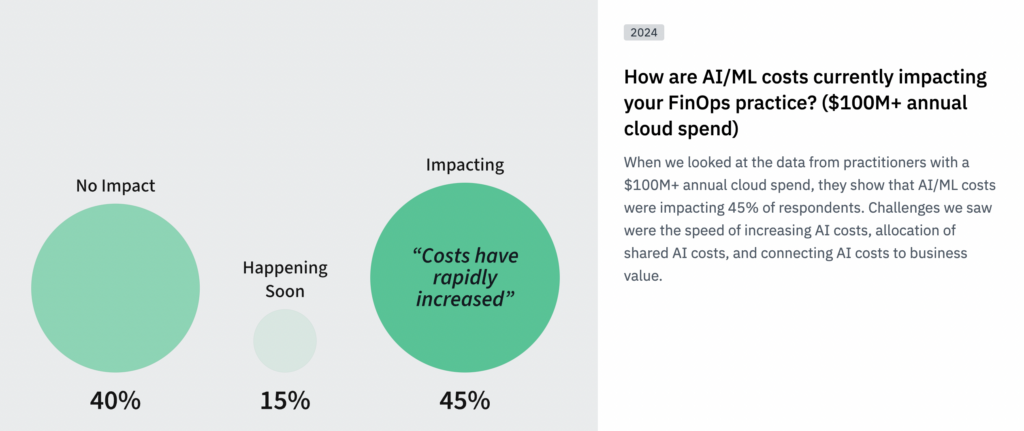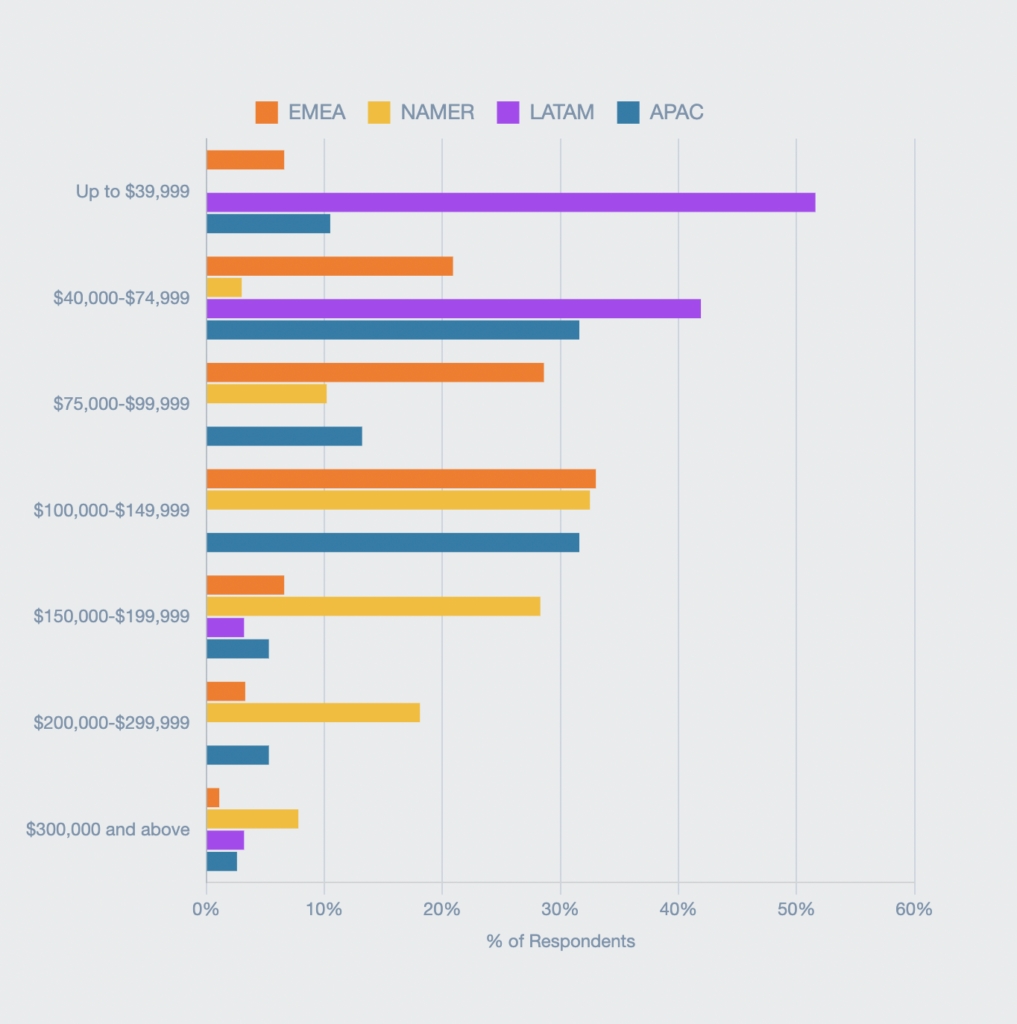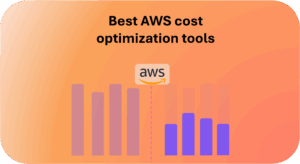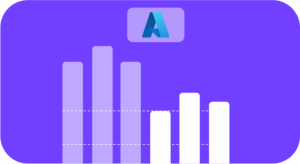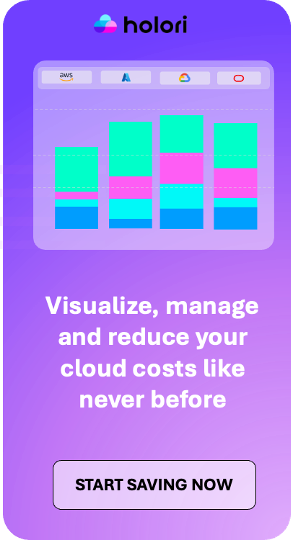In today’s competitive tech landscape, having a killer skillset is essential. And right now, there’s one skill that’s hotter than ever: FinOps. As cloud adoption explodes, businesses are scrambling to find talented FinOps professionals who can optimize costs and maximize cloud ROI. Are you ready to join the FinOps revolution and become the most in-demand professional in the cloud?
According to LinkedIn, there are currently 35 000 FinOps professional worldwide including 9 000 in the US only. My guess is that in 3 years from now, we will reach 100K FinOps professional on LinkedIn. Let’s see why!
Why the Demand for FinOps Professionals is Skyrocketing
- Exponential Cloud Growth: The public cloud market is experiencing phenomenal growth, reaching a staggering $680 billion in 2024 according to Gartner. Forecasts predict it will surpass $1 trillion by 2030, solidifying the public cloud as a dominant force.
- Rise of AI: AI training often requires massive computing power and vast amounts of data storage. This can significantly increase cloud resource consumption and drive up cloud bills. FinOps professionals will be essential to ensure these resources are optimized and costs are controlled.
- Focus on Value Optimization: Businesses seek skilled professionals to optimize cloud costs without sacrificing performance. Uncontrolled spending can quickly eat away at profits, especially for heavy cloud-reliant companies like Netflix.
- FinOps Gains Industry Recognition: The FinOps movement is gaining significant momentum. Major cloud providers like Amazon, Microsoft, Google, and Oracle have joined the FinOps Foundation, lending their weight to this discipline. This industry validation creates an expectation for businesses to adopt FinOps best practices.
What Does a FinOps Professional Do?
A FinOps professional, a cloud cost optimization champion, wears many hats, including:
- Cost Monitoring and Reporting: Visualizing and tracking cloud spending across services and accounts, identifying cost anomalies and trends.
- FinOps Strategy Development & Implementation: Collaborating with teams to define a custom FinOps strategy tailored to your organization’s needs. While there isn’t a one-size-fits-all approach, a “FinOps playbook” exists, outlining key steps for successful implementation.
- Resource Optimization: Right-sizing cloud resources to meet business needs and eliminate waste from underutilized instances. Apply savings plan and reserved instance to cut costs.
- Budgeting and Forecasting: Developing cloud spending forecasts and collaborating with finance teams to set realistic budgets.
- Cloud Billing Management: Negotiating enterprise discounts with cloud providers to secure better prices.
- Selecting Cloud Cost Optimization Tools: The intricate nature of cloud spending makes manual cost tracking a herculean task. Automating this process with technological tools such as Holori is crucial for gaining full visibility into cloud expenses. Choosing the right tools for cloud visibility and optimization is a core responsibility within Cloud FinOps roles.
The Skills You Need to Land a FinOps Job
You will thrive in FinOps jobs if you have the following skills:
- Technical Expertise: Understanding of cloud platforms (AWS, Azure, GCP) and their pricing models and cost optimization strategies.
- Financial Acumen: Strong understanding of financial principles, cost accounting, and budgeting practices.
- Analytical Skills: Ability to analyze cloud spending data, identify cost drivers, and track trends.
- Communication and Collaboration: Effective communication skills to collaborate with diverse teams across finance, engineering, and business units.
- Problem-Solving Mindset: Ability to identify and solve cloud cost management challenges, implementing efficient solutions.
FinOps Certifications to maximize knowledge and employability
While certifications aren’t mandatory, earning a FinOps certification can enhance your resume and showcase expertise:
- FinOps Certified Practitioner (FOCP): This entry-level certification validates your understanding of FinOps core principles and best practices. It’s ideal for professionals new to the field or those looking to transition into FinOps roles
- FinOps Certified Engineer: The FinOps Certified Engineer course equips you to collaborate with FinOps practitioners and stakeholders. Together, you’ll optimize cloud resource usage and maximize business value from your cloud operations.
- FinOps Certified Professional (FCP): This advanced certification demonstrates your ability to apply FinOps principles in real-world scenarios and lead FinOps initiatives within your organization. It’s suitable for experienced professionals with a proven track record in cloud cost optimization.
It’s true that FinOps certifications involve some upfront costs and require renewal exams, but they are highly valued by employers and can open doors to better career opportunities. If you are already employed somewhere, you can also ask your manager to pay for these trainings. It’s a win-win scenario as you may save higher costs for your company afterwards and boost your CV.
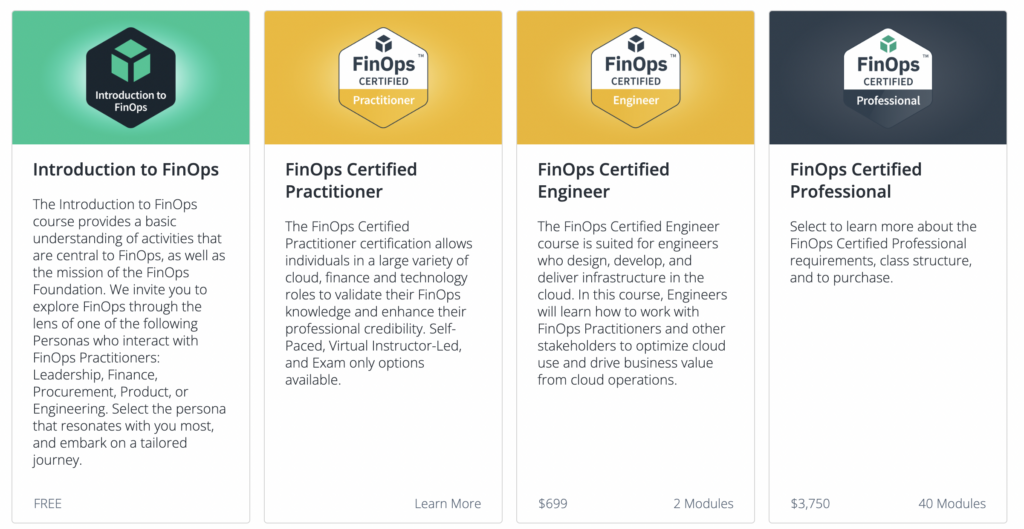
The Future of FinOps Jobs: A Promising Outlook
The demand for FinOps professionals is expected to continue its upward trajectory. As cloud adoption becomes ubiquitous, the need for skilled cost optimization specialists will only grow.
Why a Career in FinOps is a Smart Choice:
- High Demand and Competitive Salaries: The demand for FinOps professionals outpaces the available talent pool, leading to competitive salaries and strong job security.
- Career Growth Opportunities: The FinOps field offers diverse career paths, allowing you to specialize in specific areas like cloud cost optimization, cloud governance, or cloud billing management.
- Dynamic and Evolving Field: FinOps professionals stay at the forefront of technological advancements and best practices in the ever-changing cloud landscape.
- Strategic Influence: A FinOps practitioner holds a strategic position, bridging the gap between executives, finance, and engineering departments.
FinOps consultants vs full time employee ?
One of the exciting aspects of being a skilled FinOps professional is the potential to become a consultant. This allows you to optimize cloud costs for multiple companies, gaining valuable experience across diverse environments.
While navigating internal stakeholders (engineering, executives, DevOps) can be challenging, as discussed earlier, the good news is that today’s digital tools can significantly streamline this process. Cloud cost management platforms such as Holori can automate tasks like data collection and reporting, freeing you up to focus on strategic cost optimization and client communication.
Here’s the hidden advantage: Once you’ve established a well-defined FinOps strategy for a client, ongoing maintenance often requires less effort than the initial setup. This allows you to potentially manage multiple accounts efficiently, increasing your overall earning potential.
This approach mirrors the strategy used by freelancers in SEA advertising. They develop and set up paid ad campaigns, then receive ongoing compensation for maintaining and optimizing them over time. FinOps consulting offers a similar opportunity for scalability and long-term client relationships.
On the other hand, having a full time FinOps contract, you can probably land a job between 100-150K$ which is good and less stressful.
Conclusion: Embrace the FinOps Revolution
FinOps is more than a buzzword; it’s a cultural shift fostering collaboration between finance and engineering. This ensures cloud resources align with business goals while optimizing costs. As cloud adoption explodes, projected to reach $1 trillion by 2030, the demand for skilled FinOps professionals is skyrocketing.
FinOps champions wear many hats. They track and analyze cloud spending, identify cost drivers, and eliminate waste from underutilized resources. By acquiring the necessary skills and certifications, you can position yourself to be part of this growing field and contribute
The future of FinOps jobs is bright. If you seek a high-demand career with growth opportunities, a FinOps role offers an exciting blend of technical expertise, financial savvy, and strategic influence. By embracing FinOps, businesses unlock the true financial potential of the cloud, and FinOps professionals become the architects of this financial agility.
Using the right tooling in your FinOps journey is key, have a look at Holori cloud cost management platform, it’s simple, intuitive and comprehensive: https://app.holori.com/


